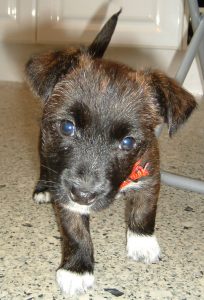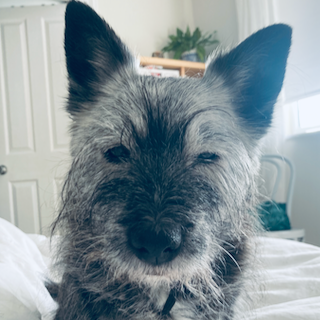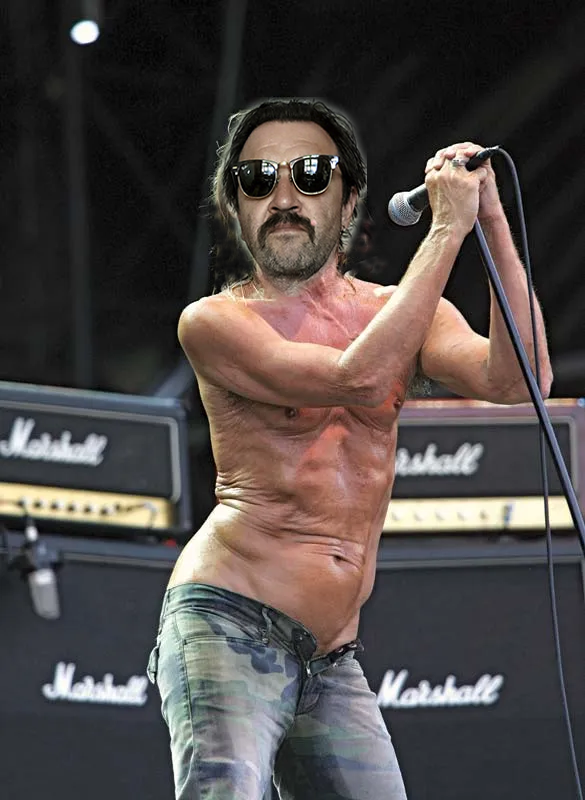Back in 2013 a telecoms company in the UK launched one of the most successful and celebrated campaigns of the year, perhaps even the decade. The title was ‘Be More Dog’ and here is how the O2 marketing director at the time described it:
Be more dog’ is all about encouraging Britain to embrace the new, have a go with the unknown and dabble in innovation.
The reasoning was that whilst we were living in an age of unheralded technological advancement, people were becoming a little jaded with the whole thing. O2 were about to launch 4G and needed to stimulate some interest. The canine qualities that they wished to foster in us all were those of enthusiasm, excitement and inquisitiveness. These are undoubtedly ‘doggie traits’ and dogs are all the more loveable for embodying them but I think that the marketing people at O2 perhaps missed the most identifiable and enviable characteristic of dogs. That is their single-minded ability to ‘be’ completely in the moment. Thinking about it now though, the reason that dogs are so enthusiastic, excitable and inquisitive is precisely because of their insistence on living in the ‘now’. Not for dogs are the regrets for past misdemeanours nor anxiety over future concerns. For our four legged friends, we are where we are, to borrow a phrase more popularly associated with making the best of a bad situation, this is the moment we are in so let’s do this!

Just what is living in the moment though? Why is it so important thing that we, as humans, should be being trying to emulate another species ability to do it? More importantly, how does one attempt to try it?
All good questions, let’s start with the ‘what’. It might actually be easier to point out what it isn’t by describing the ways in which we don’t live in the moment in order to explain what it is. Humans are time-travellers. I don’t mean this in the physical Dr Who or Jules Verne way of travelling through time and ending up 30 years into the past or 1 million years in the future (where they will finally be travelling on hover boards – I am certain) looking either strangely in fashion due to its somewhat cyclical nature or hopelessly out of date thanks to our lack of a hover board. I mean in our heads. Our minds, through thoughts and ideas, are constantly shifting our attention between what happened before and what is going to happen next. I specifically used the word ‘mind’ as our brains are not merely the apparent locus of our thoughts. The dominant activity for the brain is in constantly monitoring input from every part of our body. If our brains stopped doing this, moment by moment, tracking of our vital signs of life then we would die. It is because our brains are locked into the moment that we are free to muse in the way we do over our past (failings) and our future (failings). Whilst it is a luxury afforded to us by our brains in which we wallow it is also an example of being present that we, unlike dogs, elect not to follow.
Try it now. Just sit for a minute or five minutes and think of nothing. Make space to pay attention to your other senses. What can you see, hear or smell? How does your body feel?
.
.
.
How long did you last? 20 or 30 seconds perhaps before your thoughts impinged and reminded you of something pressing that you need to consider or to prompt you to remember something that happened earlier that you simply have to share on your social media platforms? It is difficult and you have to work at it – that is why it is called a practice. There are many terms for this practice but the most popular currently are ‘meditation’ or ‘mindfulness’.
I have always been a meditation sceptic, a midi-doubter, if you will. The idea of living in the moment was not one worth pursuing to my mind, at least not in the ‘sat on a cushion repeating a mantra to ones self’ kind of a way. Besides I had an already foolproof way of immersing myself perfectly in the moment. I found that if I drank a sufficient quantity of beer or wine then the moment was all one had to think about. Past troubles were put aside and as for the future? Who’s round next was my only concern. I am not suggesting this as necessarily a good method of becoming present but I can attest to its effectiveness at getting you there. The thing with drink is that it isn’t easy to control. That squiffy momentary glow gives way to the inevitable, uncontrollable, period of self-loathing and resentment. The moment has gone along with your self-respect. No, drunkenness has its place in life but not on the therapeutic path to enlightenment. The same can be said for many drugs.
If we cannot get there through the aid of ‘substances’ then perhaps meditation is worth a shot and that is exactly what I thought when I signed up for Sam Harris’ meditation programme – Waking Up.
Despite my reluctance to try meditation, or at least to attempt any sort of on-going practice, I have found Harris’s approach one I can get my head around. The man himself would not welcome my saying that. He would be grateful that I am subscribed and that I am engaging with the material but one of his perhaps more contentious claims is that we have no head get to round anything. The theory, as originally expounded by Douglas Harding, goes that where we consider our head to be is actually the space in which the world happens. Everyone else and everything else exists in our consciousness. It sort of makes sense and if you allow yourself to go with it can be quite liberating. So for 10 minutes a day I pay attention to the sensations in my body, to the sounds I hear and the sights I see. I also do the same with thoughts, I attend to them and experience their dissipation and disappearance. If they stick around it is generally because I am encouraging them to do so and this is because humans, as a species, tend to give more credence to our thoughts than our other senses. I think therefore I am and all that enlightened reasoning has had the effect of placing the self in the middle of our thoughts. This is about as far from the approach a dog takes to life as we could possibly be.
When Descartes put forth ‘I think therefore I am’ he did so as a literal description of how ‘I’ (the self) comes into existence through thought and thought alone.
The self, the ‘I’ of Descartes famous phrase, is also an entirely temporal concept. Therefore, if you are able to be fully present in the moment then there is no self there, no ‘I’. When we invoke the concept of our self we think of what we have been and done and we think about what we are going to do and who we are going to be. Indeed we can only think of the self as that is the only way in which it exists.
I described earlier how one can achieve something of meditative, momentary state through drink but how this process ultimately strips one of aspects of the self – self-respect, inhibition, restraint etc. To truly engage with what is happening right now one must try to reverse the process and remove the self from the outset. That is the aim of the exercise because it is only when we take away this filter through which we view the world can we fully engage with all our senses.
Dogs rely on their instincts and their senses to appreciate what is happening right NOW and they act accordingly. We humans prefer to rely on our over developed brains. Consequently, we are constantly theorising over everything that happens in our lives. We clearly need to be more dog and trust that what we see, hear, smell, taste and feel is actually what it is and respond to it in the way that seems most appropriate.
Because it probably is.
So put your phone down, disengage your brain and take the dog out for a good long walk.


